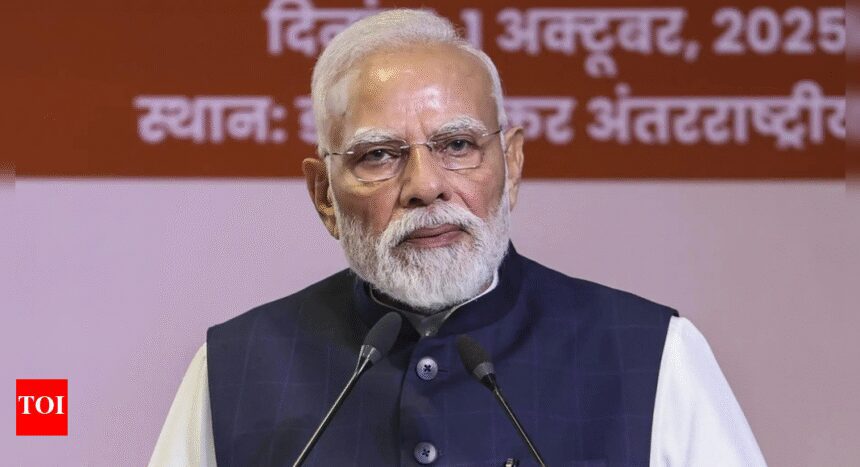NEW DELHI: Prime Minister Narendra Modi convened a meeting on Tuesday with cabinet ministers and secretaries from transport-related ministries to lay the groundwork for the creation of an apex Transport Planning Authority. This body will be responsible for comprehensive planning across the entire transportation ecosystem.
Sources indicated that the meeting explored successful international models, including insights from the Korea Transport Institute (KOTI), a South Korean think tank that offers recommendations for national transport policy. Other examples, such as transport planning strategies from China, were also reviewed.
The Prime Minister stressed the importance of breaking down silos and promoting integrated infrastructure planning. He highlighted the necessity of developing an ecosystem in India for effective transport planning, especially given the absence of a unified agency; each ministry currently operates with its own vision documents. There is minimal collaboration between ministries and states, and most planning relies heavily on external consultants.
According to reports, the lack of a centralized authority has resulted in no defined five-year or ten-year transport plans. The PM Gatishakti National Master Plan has been relegated to merely serving as a project appraisal tool. Furthermore, existing frameworks for project monitoring are fragmented, with no agency dedicated to suggesting global best practices or offering innovative implementation methods. An official noted the absence of a body to take on policy advocacy or recommend legislative changes, as well as no mechanism for mid-course corrections in the case of failures.
Plans include the establishment of a National Institute for Transport Planning, along with a Gati-Shakti Transport Planning and Research Organisation within the cabinet secretariat. Initially, a Group of Transport Experts (GTE) will be formed, comprising specialists in transport planning, supply chain management, data science, and network optimization from prestigious institutions such as IIT in Delhi, Chennai, and BHU, as well as BITS Pilani. This group is expected to provide technical support to the sectoral group of secretaries and propose relevant plans for the next five, ten, and fifteen years.










